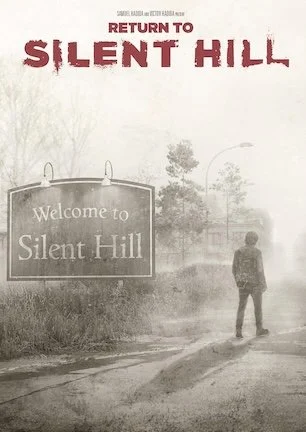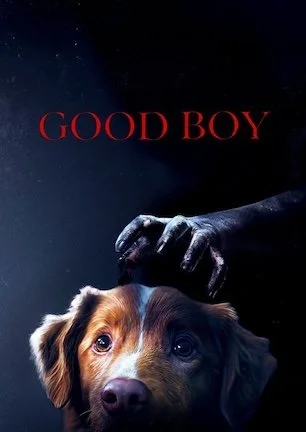Studio: IFC Midnight
Director: Zach Donohue
Writer: Lauren Thompson, Zach Donohue
Producer: Dan Clifton, David Brooks
Stars: Melanie Papalia, David Schlactenhaufen, Adam Shapiro, Anna Margaret Hollyman, Matt Riedy, Katija Pevec, Saidah Arrika Ekulona
Review Score:
Summary:
After witnessing an apparent murder over a video chat website, a young woman’s life unravels as her friends and family become the killer’s next targets.
Review:
Imagine if the viral Facebook hit “Take This Lollipop” were to really happen. As an overeager university student determined to find deeper behavioral meaning in how ordinary people use and misuse social media, peppy coed Liz has just been awarded a gob of grant money to research contemporary communication trends. Her chat roulette site of choice is The Den, a spot-on recreation of the online wasteland and predatory playground for perverts and pranksters that the rest of us just know as the Internet.
It isn’t exactly clear what kind of academic insight Liz hopes to gain from the 24/7 time sink of swinging penises, sock puppets, masturbatory weirdos, and requests to pull out her boobs. But noble causes of higher learning are forced to take a backseat anyway when things go from playfully demented to downright psychotic after Liz witnesses a live murder via webcam. Friends start disappearing, policemen shrug their shoulders, and Liz finds herself the fly caught in a spider’s web of kidnapping, confinement, and killing.
What sets “The Den” apart from the derivative glut of “found footage” horror movies is that “The Den” understands how to make the format an organic character of its own, rather than a cheap medium to record a story that could have been told any other way. You know, like all of those lost in the woods and haunted asylum investigation knockoffs that soured everyone on “found footage” in the first place.
Playing out predominantly through chat windows, IM boxes, and email messages, the main milieu is a laptop desktop occasionally supplanted with a wayward iPhone video or hidden camera clip. “Found footage” is a trap that bites so many greenhorn filmmakers looking for the easiest genre to make a movie and the cheapest way to do it. First time feature director and “The Den” co-writer Zach Donohue bucks that sad trend by actually paying thoughtful consideration about how to give webcams an active role instead of being a mere capture device for routine paranormal action.
The result is a fiction that makes sense, even when the limits of suspended disbelief crack in so many places at once. Few people have gallivanted through a haunted forest with a handheld camera, or filmed themselves sleeping with the hope of catching a ghost on video. But give us characters Skyping in their pajamas while watching cat videos or text chatting tripe and you have ready-made believability with which modern audiences can relate.
One of the benefits of that setup is that the act one lead-in, which is traditionally the requisite “found footage” fluff of get-to-know-you backstory and other forgettable bathroom break material, is genuinely entertaining. Initial chat roulette rounds showcase accident-prone bike messengers, sexually overconfident preteens, and all of the innumerable penis references any average person has come to expect from a typical hour of mindless online activity.
Side stories are toyed with involving troubles with Liz’s boyfriend and a will they or won’t they crush related to her tech nerd guy friend. The screenplay could have easily padded itself unnecessarily with drawn out nonsense regarding that love triangle, but “The Den” is at peace with leaving such asides as momentary distractions meant to ground the movie in some sort of pedestrian reality.
“The Den” does not exactly go on longer than it needs to, it is only 70 minutes without credits, but it does break into act three earlier than expected. Donohue and co-scripter Lauren Thompson might have thought they were being merciful by not dragging out the “nobody believes the girl crying wolf” angle of Liz’s warnings and exclamations falling on deaf ears. Instead, the final slalom to the finish dispenses with the psychological torture for a focus towards full-on physical horror.
Donohue and Thompson are evidently trying to open up their story so that it doesn’t feel so tightly confined to web chats in one girl’s bedroom. What they are attempting makes sense to ensure the snowball keeps growing as it rolls forward, though the changeup does remove some of the accessibility of the drama. What ends up unfolding is a large-scale conspiracy of such improbable proportions that the relatable threat of peeving a random internet madman is taken away in the process.
“The Den” aims for a haunted house feel with a finale where the main character walks into one boo moment after another in an endless succession of jump scares. At first it looks like “The Den” might be going too visceral of a route in emulating the conclusion to “Megan Is Missing” or something out of a “Saw” movie. Luckily for those not interested in gross out terror, the horror in “The Den” is more about straight murder and mind games than the depiction of squirming physical torture.
There will be those leveling typical “found footage” complaints at the film, particularly the ever-popular question of, “why are they still filming?” Indeed, there are unbelievable instances of convenient corruptions just when the video gets to a juicy part, a professor quick to presume that a compromising video in her Inbox was sent intentionally, cops just as quick to dismiss the whole situation entirely, and iPhones curiously remaining in record mode well past the point where any sensible person would have returned it to his/her pocket.
Sure, there are plenty of details to nitpick, but in the end, what does one want? A flawlessly constructed conceit in service of a perfectly realistic idea or a frighteningly relatable thriller designed for chilling suspense and enjoyable horror? “The Den” may not have the former, but it definitely has the latter.
Review Score: 75






While the 110-minute runtime could use a trim to maintain more energy, “Redux Redux” is an easy recommend for anyone who enjoys low-key sci-fi.